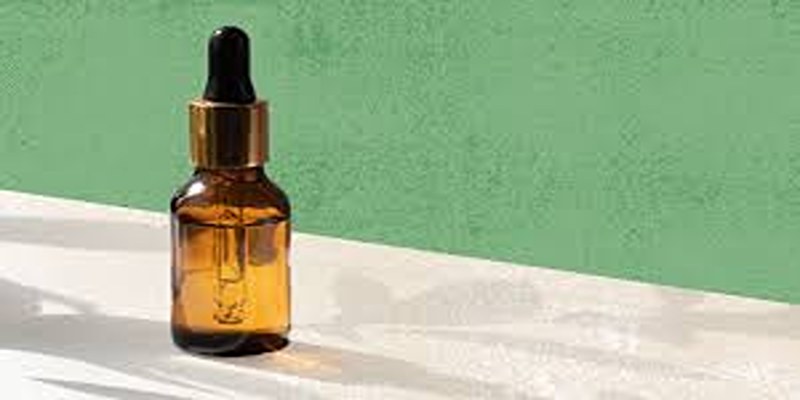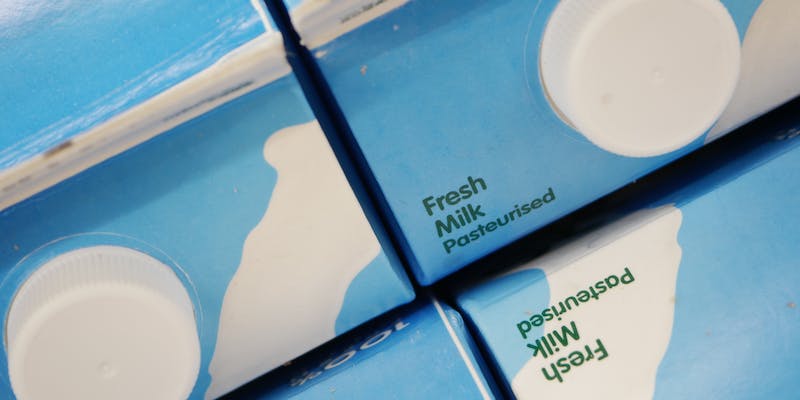Exploring the Power of Tea Tree Oil for Acne Relief: Benefits and Tips
Dec 06, 2024 By Celia Shatzman
Whatever your age or gender, millions of us suffer from it: acne is a common skin condition. There are a lot of options over the counter, or prescription, that people choose to use for their skincare, but there are of course people who prefer natural options to using those. Tea tree oil is one of those remedies that has become fashionable due to its alleged power to combat acne. Read this article for the up and downs about using tea tree oil for acne: the science, how it works, its benefits, and risks.
What is Tea Tree Oil?

There are several important things to know about tea tree oil, an essential oil taken from the leaves of the Melaleuca alternifolia tree, or more commonly known as an Aussie tree. For centuries, this oil has been widely used because it possesses powerful antibacterial, antiviral and anti-inflammatory properties that have proven quite effective. Tea tree oil is well known as a natural remedy and is sometimes applied to the skin to treat a variety of problems (good works), including acne.
It is also known for counteracting bacteria and lowering inflammation and this is done by terpinen-4 -ol, the active compound found in the tea tree oil. Tea tree oil is used by people in small amounts as a spot treatment for acne and by others in topical skincare products. The skin world flocks to this because of its popularity and versatility, after all, its natural origin.
How Does Tea Tree Oil Work on Acne?
On offer for people who want to try to manage acne naturally is tea tree oil, which has several possible benefits. Below are some of the main advantages of incorporating tea tree oil into a skincare routine:
1. Antibacterial Properties
Tea tree oil is antibacterial, and is effective at fighting acne-causing bacteria. It may help reduce bacterial growth on the skin, to avoid new pimples from forming.
2. Reduces Inflammation
All of these can, in turn, cause acne to become inflamed, causing red, swollen skin. The anti inflammatory properties of tea tree oil may help soothe irritated skin bringing relief to pain and redness.
3. Natural and Gentle Option
Its a natural remedy, so many people prefer tea tree oil. Though there are many medical grade treatments for acne, this chemical acne treatment does not usually bother the skin as much as it can be a little bit more gentle for the skin, so this would work well if you have sensitive skin.
How to Use Tea Tree Oil for Acne?
To make sure youre properly applying tea tree oil and that you dont irritate the skin, you have to do it right. Here are some methods for using tea tree oil safely:
- Dilute Before Applying
Pure tea tree oil can be too harsh for direct application. Mix a few drops of tea tree oil with a carrier oil, such as coconut oil or jojoba oil, before applying it to the skin. A typical ratio is 1-2 drops of tea tree oil to 12 drops of carrier oil.
- Spot Treatment
Using a cotton swab, apply the diluted tea tree oil only to acne spots. This allows for targeted treatment without drying out surrounding skin.
- Add to Skincare Products
Another option is to add a drop or two of tea tree oil to your moisturizer or cleanser. This can help distribute the oil evenly and prevent skin irritation.
Potential Side Effects of Tea Tree Oil
While tea tree oil can be beneficial, its essential to use it with caution. Some potential side effects include:
- Skin Irritation: Direct application of undiluted tea tree oil may cause redness, burning, or itching, especially in those with sensitive skin.
- Allergic Reactions: Some people may experience allergic reactions. Always perform a patch test before using tea tree oil on your face.
- Dryness and Peeling: Excessive use of tea tree oil can dry out the skin, leading to peeling. Limit use to once or twice daily to avoid these issues.
Is Tea Tree Oil Suitable for All Skin Types?
Tea tree oil can be used by people with various skin types, but it may not be suitable for everyone. For example, those with dry or sensitive skin might experience irritation or dryness. If you have oily or acne-prone skin, tea tree oil might be a better fit. However, always start with a patch test to determine if your skin can tolerate tea tree oil.
Can Tea Tree Oil Prevent Future Acne Breakouts?

Although tea tree oil may help reduce acne, its not necessarily a preventative measure. However, by fighting bacteria and reducing inflammation, it may reduce the risk of future breakouts to some extent. Maintaining a consistent skincare routine and using tea tree oil as a spot treatment may support clearer skin.
Alternatives to Tea Tree Oil for Acne
If tea tree oil doesnt work for you or causes irritation, there are other natural remedies that may be helpful for acne-prone skin, such as:
- Aloe Vera: Known for its soothing properties, aloe vera can help calm inflammation and moisturize the skin.
- Green Tea Extract: Green tea contains antioxidants that can help reduce inflammation and fight bacteria on the skin.
- Witch Hazel: This natural astringent can help remove excess oil and reduce redness.
Conclusion
Tea tree oil offers a natural option for those looking to reduce acne and manage breakouts. Its antibacterial and anti-inflammatory properties make it a popular choice among people with acne-prone skin. However, its important to use tea tree oil properly and consider any potential side effects. Before incorporating tea tree oil into your routine, start with a patch test, and consult a dermatologist if you have any concerns. With careful use, tea tree oil may become a valuable addition to your skincare routine, helping you work toward clearer skin.

What percentage of stroke patients make a full recovery?

Serving up healthy, high quality and local food in Victorian public hospitals and aged care facilities

Exploring the Power of Tea Tree Oil for Acne Relief: Benefits and Tips

Is Sunflower Oil Really Beneficial for Your Health?

Expert Advice: 2 Ideal Times for Your Probiotic Supplement

Pasteurization Debate: Assessing Nutrient Loss in Processed Foods

How To Get Rid of Muscles Knots: Six Effective Ways to Treat


